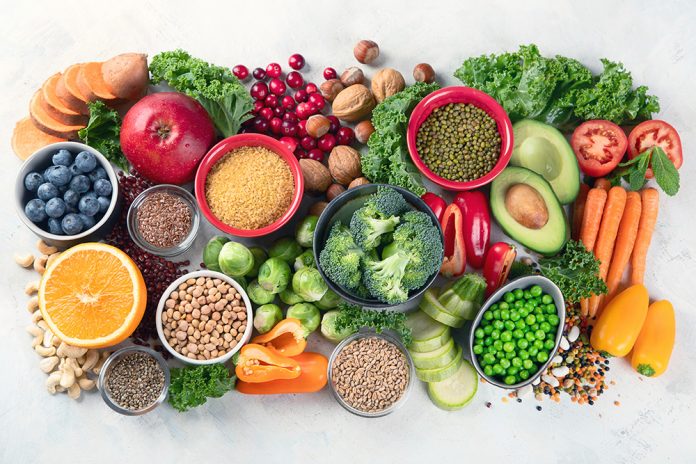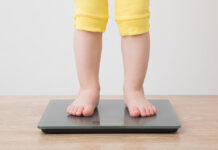This post is also available in: English हिन्दी (Hindi) বাংলা (Bengali)
Babies older than 6 months often have nutrient deficiencies and, in most cases, these deficiencies are because of wrong weaning practices.
Breast milk is a complete food for babies below six months of age. After 6 months babies must be given the right solid foods to ensure that they do not develop nutritional deficiencies.
If weaning is not done with the right foods, babies may begin to show signs of protein and vitamin deficiency.
How to ensure that babies get enough protein and vitamins?
- Feed your baby Whole Grains

Use brown rice (rich in Vitamin B complex and protein) instead of white rice at meals.
Use whole wheat (rich in Vitamin B complex and protein) to make rotis instead of maida or refined flour.
Unlike refined grains, whole grains are rich in protein and vitamins.
- Introduce millets like Ragi and Bajra

Ragi (rich in protein and B complex vitamins) can be given as a porridge at first. It can then be incorporated into various recipes and used to make pancakes etc. Ragi is an excellent millet that can become a standard ingredient for your baby’s breakfast and snack recipes.
Bajra (rich protein and in Vitamin A and B) can be used to make porridge and khichdi. You can give these to your baby for lunch and at snack time.
- Use Pulses or Dals in various recipes

All pulses or dals are rich in proteins and vitamins. When they are cooked in their whole form without removing their skin or polishing them, they are even better sources of these nutrients.
Start your baby on dals like yellow moong dal (rich in protein and vitamin B complex) that are easy on the digestive tract at first. And then move to other dals like chickpea (rich in protein and vitamin A, vitamin B complex and vitaminC), rajma (rich in protein and vitamin B9 and B complex), horsegram (rich in protein and vitamin B complex) and cowpea ( rich in protein and vitamin B complex).
One of the challenges of feeding babies dal is that when dal is served with roti, babies typically just eat the watery part of the dal. To combat this problem, use dal in khichdi, or mix it with rice, serve it as a standalone soup or incorporate it into a paratha or cutlet.
- Add egg to your baby’s diet after the age of 1

Egg yolk is rich in vitamin A, the B complex vitamins and Vitamin D and egg white is rich in protein.
Because egg whites are rich in protein they can cause allergy.
That is why it is best to delay introducing this protein source. Make it part of your baby’s diet only after your baby turns 1 year old.
It is best to hard boil eggs before you serve them to your baby.
You can mash boiled eggs and serve them mixed with a little bit of breast milk to make them easier to swallow.
- Start your baby on paneer after the age of 1

Paneer is a good source of protein and vitamins A and D.
You can make paneer at home by curdling milk.
You can then mix the paneer with fruit purees or make cutlets with them.
- Give your child fruits and vegetables
Fruits and vegetables are rich in vitamins.
The following purees can be served and will help your baby get the respective vitamins.
Pumpkin puree for vitamin A
Spinach puree for vitamin B complex, vitamin E and K
Orange pulp for vitamin C
Below is a detailed chart with information about vitamins for your baby:
| Vitamin name | Health Benefit | Food source | Age at which the food should be introduced |
| Vitamin A | Keeps eyes healthy + Builds immunity | Carrots Pumpkin | 7 months + 7 months + |
| Vitamin B complex (B1, B2, B3, B5, B6) | Helps make and release energy from food | Whole Pulses (moong, masoor, chickpea) Whole grains (whole wheat atta, brown rice) Millets (Ragi, Bajra) | 8 months + 8 months + 8 months + |
| Vitamin B9 (Folate) | Keeps the body healthy through its role in protein metabolism and DNA/RNA formation | Green leafy vegetables | 7 months + |
| Vitamin B12 (Cobalamin) | Needed to form Red Blood Cells and keep brain and nerves healthy | Milk Curd Eggs | 1 year + 1 year + 1 year + |
| Vitamin C | Protects from infection and heals wounds | Citrus fruits like oranges Broccoli Cabbage | 7 months + 8 months + 7 months + |
| Vitamin D | Keeps bones and teeth healthy | Eggs Milk | 1 year + 1 year+ |
| Vitamin E | Protect cells from damage and keeps red blood cells healthy | Whole grains (whole wheat Atta, brown rice) Green leafy vegetables | 8 months + 7 months + |
| Vitamin K | Forms clots and stops bleeding | Green leafy vegetables | 7 months + |
Both proteins and vitamins are essential for growth and good immunity. Make sure you serve the above foods to your baby at various meals through the week to ensure that they do not develop nutritional deficiencies.
By
Dr. Debmita Dutta MBBS, MD

Dr. Debmita Dutta MBBS, MD is a practicing doctor, a parenting consultant, and the founder of WPA whatparentsask.com She conducts online and offline workshops on parenting for schools and corporate organisations. She also conducts online and offline prenatal and infant care classes. She is a well-known thought-leader in parenting and an expert on play, learning and eating habits. Her books on parenting are published by Juggernaut Books and are among their most read books. She is frequently quoted in national and international publications of repute for her empathetic and compassionate approach to parenting and her application of physiology and brain science to parenting.
This post is also available in: English हिन्दी (Hindi) বাংলা (Bengali)










